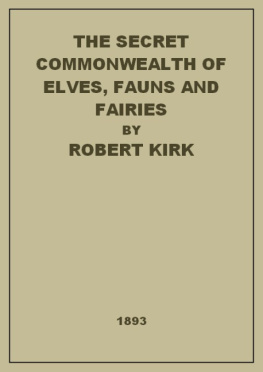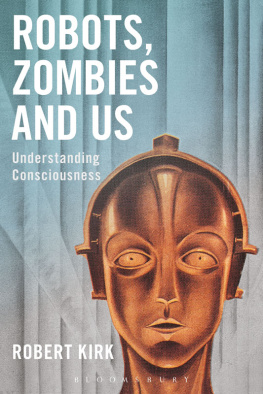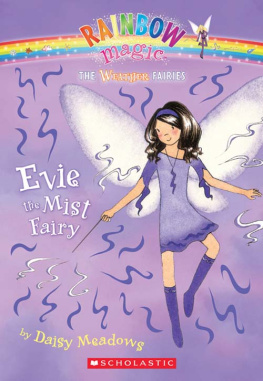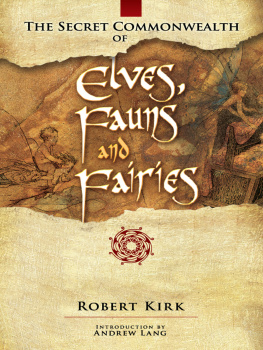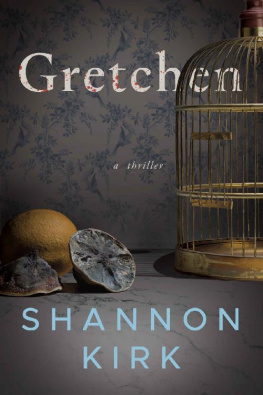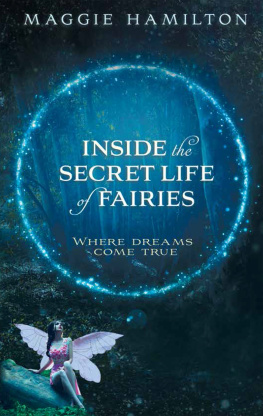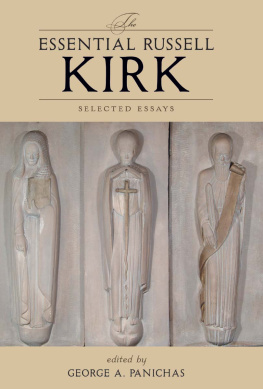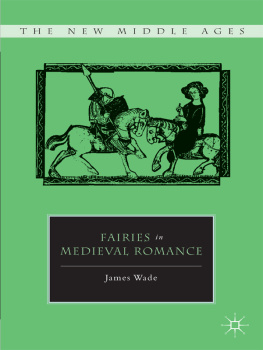
Secret Commonwealth Of Elves, Fauns And Fairies By Robert Kirk
V. FAIRIES AND PSYCHICAL RESEARCH
The Fairy belief, we have said, is a composite thing. On the materials given by tradition, such as the memory, perhaps, of a pre-historic race, and by old religion, as in the thoughts about the pre-Christian Hades, poetry and fancy have been at work. Consumption, lingering disease, unexplained disappearances, sudden deaths, have been accounted for by the agency of the Fairies, or People of Peace. If the superstition included no more than this, we might regard it as a natural result of imagination, dealing with facts quite natural in the ordinary course of things. But there are elements in the belief which cannot be so easily dismissed. We must ask whether the abnormal phenomena which have been so frequently discussed, fought over, forgotten, and revived, do not enter into the general mass of folk-lore. They appear most notably in the two branches of Browniedom--of "Pixies," as they say in Devonshire, who haunt the house, and in the alleged examples of the second sight. The former topic is the more obscure, if not the more curious. Let us examine the occurrences, then, which may have begotten the belief in Brownies, and in house-haunting Pixies or Fairies. These appearances may be alleged, on one hand, to be actual facts in Nature, the workings of some yet unexplained forces; or they may merely be the consequences of some very old traditional method of imposture, vulgar in itself, but still historical. That form of imposture, again, may be wrought either by conscious agents, or unconsciously and automatically by persons under the influence of somnambulism; or, finally, the phenomena may in various cases be due to any one of these three agencies, all of which may possibly be ver caus, as conscious imposture and trickery is certainly one vera causa.
In Mr. Kirk's book we meet "the invisible Wights which haunt Houses,... throw great Stones, Pieces of Earth and Wood at the Inhabitants," but "hurt them not at all." As we have said, Major (1518) calls these wights "Fauni or Brobne"--that is, Brownies--and says that they thrash as much grain in one night as twenty men could do, and throw stones about. The legend of their working was common in Scotland, and a correspondent says that in Devonshire the belief in Pixies who set the house in order exists among the grandparents of the present generation. But the sportive is more common than the kindly aspect of Brownies. Through history we constantly find them causing objects to move without visible contact, and "acting in sport, like Buffoons and Drolls." In his Letters on Demonology (p. 377) Scott gives instances where the buffoon or droll was detected, and confessed that the rattlings of plates and movements of objects were caused by an apparatus of threads or horsehair. He also quotes the famous doings of "The Just Devil of Woodstock" in 1649, which so perplexed and discomfited the Cromwellian Commissioners. He accounts for those annoyances by the confessions of Joe Collins of Oxford, "Funny Joe," which he quotes from Hone's Every-Day Book, while Hone quotes from the British Magazine of 1747. But the writer in the British Magazine gives no references or authorities for the authenticity of Funny Joe's confessions, nor even for the existence of Joseph. Scott could not find his original in the pamphlets of the British Museum, and some of the statements attributed to Joe do not tally with the official account, and other contemporary documents collected in Sir Walter's Woodstock. Joe pretends, for example, to have been secretary to the Commission under the name of Giles Sharpe; but in the other accounts the secretary is named Browne. A Royalist Brownie or Polter-geist lies under shrewd suspicion, but Joe's own existence is unproved, and his alleged evidence is of no value. However, no sane person can dream of doubting that many a Brownie has been as much in flesh and blood as the Brownie of Bodsbeck in Hogg's story.
There remain the less easily explicable tales of strange and humorous disturbances, accompanied by loud sounds, rappings, the moving of objects without visible contact, and so forth.
Beginning, then, with what is nearest to us in time, we take Mr. F. W. H. Myers's essays "On the Alleged Movement of Objects without Contact, occurring not in the Presence of a Paid Medium."
This is a disgusting story if Mr. H's health was ruined by his presence at the performances. The point, however, is that he did behave in epileptic fashion while these events were in progress. It is natural to suppose that, in his "trances," he may have been capable, unconsciously, of feats physically and morally impossible to him in his normal condition. This explanation would not cover all the alleged occurrences, but would account for many of them.
We now take an ancient instance, similar disturbances at Newberry, in New England, in 1679, similarly accompanied by the presence of an epileptic patient. The house of William Morse was "strangely disquieted by a dmon." The inmates were Morse, his wife, and their grandson, a boy whose age is not given. The trouble began on December 3, with a sound of heavy objects falling on the roof. On December 8, large stones and bricks "were thrown in at the west end of the house... the bedstead was lifted up from the floor, and the bed-staff flung out of the window, and a cat was hurled at the wife. A long staff danced up and down in the chimney. The man's wife put the staff in the fire, but she could not hold it there, inasmuch as it would forcibly fly out; yet after much ado, with joynt strength, they made it to burn.... A chair flew about, and at last lighted on the table, where victuals stood ready to eat, and was likely to spoil all, only by a nimble catching they saved some of their meat.... A chest was removed from place to place, no hand touching it. Two keys would fly about, making a loud noise by knocking against each other.... As they lay in bed with their little boy between them, a great stone from the floor of the loft was thrown upon the man's stomach, and he turning it down upon the floor, it was once more thrown upon him." On January 23, 1680, "his ink-horn was taken away from him while he was writing" (he was keeping a diary of these events), "and when by all his seeking he could not find it, at last he saw it drop out of the air, down by the fire.... February 2, while he and his boy were eating of cheese, the pieces which he cut were wrested from them.... But as for the boy, he was a great sufferer in these afflictions, for on the 18th of December he, sitting by his grandfather, was hurried into great motions. The man made him stand between his legs, but the chair danced up and down, and was like to have cast both man and boy into the fire, and the child was tossed about in such a manner as that they feared his brains would have been beaten out."
All these contortions of the boy were apparently what M. Charcot calls clownisms . When taken to a doctor's house the boy "was free of disturbances," which returned with his return home. He barked like a dog, clucked like a hen, talked nonsense about "Powel," who pinched and bullied him. While he was in bed with the old people, "a pot with its contents was thrown upon them." They were clutched by hands, like Mr. and Mrs. C. Once a voice was heard singing, "Revenge, revenge is sweet." Finally a mate of a ship came, declared that the grandmother was not rightly suspected as a witch, and offered, if he were left alone with the boy, to cure him. "The mate came next day betimes, and the boy was with him till night; since which time his house, Morse saith, has not been molested with evil spirits." Probably the mate used a rope's end: the boy was more speedily cured than Mr. H.
Next page
